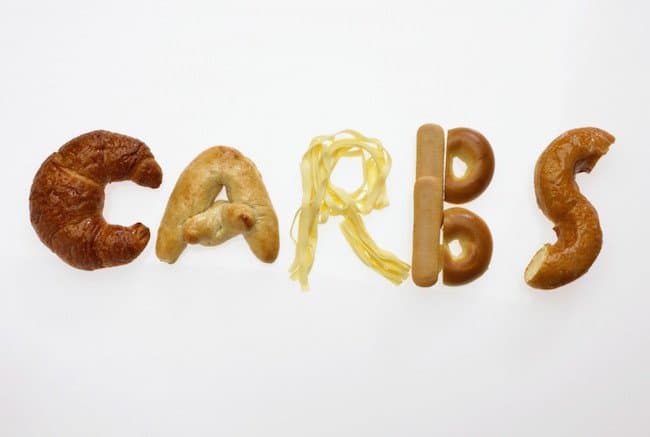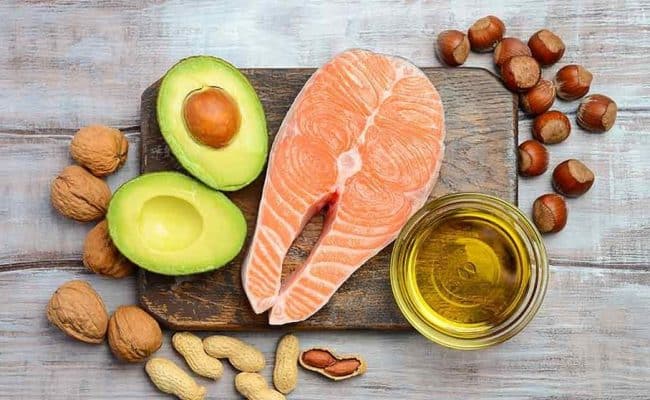
The popular weight loss method in previous years has been to follow a traditional lower calorie, lower fat diet. However, as this weight loss message grew, the waist lines of Americans still grew. As time passed, researchers and health experts realized weight loss may take more than just following a lower calorie diet that was lower in fat.
Weight loss may also need cutting out excess sugar and paying attention to the calorie quality you are eating.
Eating foods that are high in simple carbs, like refined breads, pastas, cereals and packaged snacks can produce a strong blood glucose and blood insulin surge.
A strong insulin release after eating can promote fat storage. Therefore, addressing the release of insulin after eating may be key for weight loss success.
There has been a shift in popularity with low carb diets for weight loss instead of using a low fat diet.
Some studies have shown following a low carb diet may offer greater initial weight loss, but some research suggests 1-2 years after following either a low fat or low carb diet, weight loss was the same between groups.
While following a low carb diet may offer more initial weight loss, sticking with a low carb diet can be challenging. Long term, the main factor for weight loss is what will you stick with.
What is a low carb diet?
It is recommended for healthy Americans to get between 45-65% of daily calories from carbohydrates. For most people, that can easily be at least 200 grams of carbohydrates per day.
Following a low carb diet means you are eating a higher amount of protein and fat and limiting your carb intake.
Low carb diets can vary, but in general they are below 45% of daily calories. Some low carb diets may start initially as low as 20-40 grams of carbohydrates per day and work up to about 100 grams per day.
A low carb diet eliminates or severely restricts higher sugar foods like sweets, sweetened beverages, refined grains and packaged snacks.
However, it can also restrict nutrient dense foods like fruits, starchy vegetables, whole grains, dairy and legumes.
Some initial phases of low carb diet that limit carb intake to 20-40 grams per day mean you are not allowed to eat many fruits and vegetables.
Barriers to a low carb diet
A common symptom of following a low carb diet can be constipation. Most high fiber foods are sources of carbs which are restricted on a low carb diet.
How you can get around this is to make sure you are eating plenty of low carb veggies in your diet such as: leafy greens, broccoli or cauliflower.
By increasing your intake of non-starchy vegetables, you are not only getting fiber but many vitamins and minerals that may be now lacking in the diet.
B vitamins, antioxidants and potassium are nutrients that may be lacking in a diet that limits whole grains, fruits and vegetables.
Mayo Clinic (1) suggests besides constipation, following a low carb diet may cause: headaches, bad breath, muscle weakness, nausea, muscle cramps or fatigue.
If you experience these symptoms, adding in nutrient dense sources of carbs may help alleviate them. Over time, some symptoms may also go away.
Before switching to a low carb diet, consult your healthcare team for individualized guidance.
Sticking with a low carb diet can be hard if you eat meals outside your home. Most food from a restaurant or from pre-packaged foods may not fit your low carb regimen.
Some low carb weight loss plans add in some carbs for different phases of the diet which may help with adhering to the diet long term.
Another consideration for following a low carb diet is exercise. Exercising while following a low carbohydrate diet may not line up with your exercise goals.
You may feel more tired and weak during your workouts if you severely limit your carbohydrate intake.
Greatest weight loss first few weeks
Where low carb diets may have an advantage for weight loss is in the initial steps. Some studies have found a low carb diet can increase weight loss initially over other diets.
One reason for this is because following a low carb diet will promote a loss of water weight and glycogen stores.
You may notice when first starting a low carb diet your weight loss is over a few pounds per week.
Note: Hypnosis for weight loss, can help you accelerate weight loss when following a diet.
Weight loss from low carb diet past the initial stage
After the first few weeks, or even months, of following a low carb diet, does the weight continue to melt off faster than other diet types?
A 2016 study (2) and a 2014 study (3) both found participants following a low carb diet had more significant weight loss compared to participants on a low fat diet after 12 months.
The low carb diet limited carbohydrate intake to 40 grams per day, and the low fat group limited fat intake to less than 30% calories and 7% saturated fat.
The 2014 study also found the low carb diet was more beneficial for lowering risk for cardiovascular disease compared to the low fat diet.
However, not all research has shown a weight loss benefit of following a low carb diet longer than a few months.
A 2004 review (4) suggests two weight loss trials showed more weight loss with a low carb diet at 6 months but not at 12 months.
Long term weight loss between low carb, low fat and Mediterranean diet
A 2008 study (5) analyzed the differences in weight loss at 6, 12 and 24 months of following either a low carb (20 grams per day for 2 months followed by 120 grams per day), low fat (30% calories from fat, less than 10% saturated fat) or a low calorie Mediterranean diet.
All groups had significant weight loss, waist circumference loss and lowered blood pressure. The low carb group showed a significant increase in HDL cholesterol over time as well as lowered triglyceride levels.
Weight loss reductions were greater in the Mediterranean and low carb group compared to the low fat group.
A 2014 study (6) also compared weight loss differences between a low carb and low fat diet over 12 months.
Researchers found no significant difference between groups suggesting either way can be a viable solution for weight loss.
Instead of focusing on which diet type to follow, what may be more important is sticking with it.










